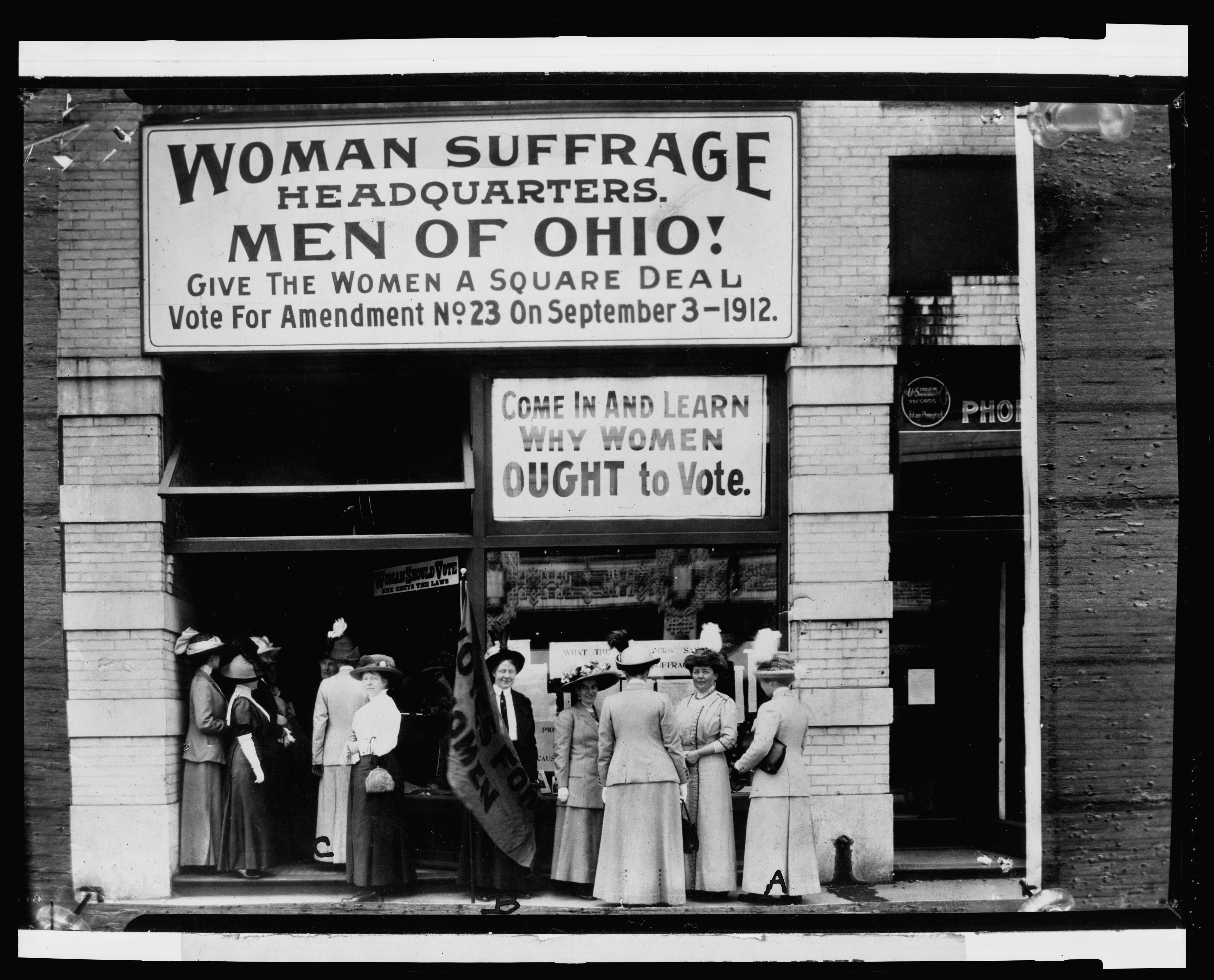 In the photo above, National League of Women Voters members gather at the woman suffrage headquarters in 1912 in Cleveland, Ohio. DePaul University experts are available to discuss the 100-year anniversary of women's suffrage. (Photo courtesy of the Library of Congress)
In the photo above, National League of Women Voters members gather at the woman suffrage headquarters in 1912 in Cleveland, Ohio. DePaul University experts are available to discuss the 100-year anniversary of women's suffrage. (Photo courtesy of the Library of Congress)CHICAGO — The 19th Amendment to the U.S. Constitution guaranteeing women the right to vote was ratified by the states Aug. 18, 1920. During the 100th anniversary year of women’s suffrage, DePaul University experts Christina Rivers and Amy Tyson are available to discuss the significance of the movement, its relevance today, and the work still left to be done.
Christina Rivers, Associate Professor of Political Science, College of Liberal Arts and Social Sciences. Rivers is an expert on race and representation in the U.S., African American politics and political thought, and civil and voting rights law. She can speak to the issues of voter suppression, the underrepresentation of women in politics, and the broader impact of the women’s suffrage movement today. She can be reached at 773-325-4593 or
crivers@depaul.edu.
“By some historical accounts, the women’s suffrage movement fell short almost right off the bat. For the first couple of decades, women really sat on their right to vote. It’s not that they didn’t vote, but they didn’t vote in ways that would lead to them running and being elected to office. It wasn’t until the 1960s that women started to talk more about utilizing their right to vote as well as their voice to improve their positions in the domestic and public spheres. To an extent, this is still felt today where it’s nice to have the vote, but it only means so much when women are still so profoundly underrepresented in legislative and other elected bodies. Had someone told me if I were alive in 1920 that in 2020 there would still be this disproportionality across all levels of government, I’m not sure if I would have believed them,” said Rivers.
Amy Tyson, Associate Professor of History and American Studies, College of Liberal Arts and Social Sciences. Tyson is an expert on 19th and 20th century U.S. social and political history and can talk about the significance of the women’s suffrage movement today. She can be reached at 773-325-4983 or
atyson2@depaul.edu.
“The history of women’s suffrage shows the organizing power of women at a time when it was no small task to convince the nation that women should enter the political fray. To draw attention to their cause, suffragists staged massive parades, picketed the White House, lobbied state and federal legislatures, faced arrest on charges like obstructing traffic, and some even staged hunger-strikes from inside their jail cells,” said Tyson. “After the passage of the Reconstruction Amendments, which outlawed slavery, and enfranchised male citizens regardless of race or previous conditions of servitude, the suffrage movement was increasingly divided by race. The nation’s largest suffrage organization, the National American Woman Suffrage Association, largely dismissed black women’s particular concerns. They instead aimed to pass state by state woman suffrage amendments through adopting what was known as the Southern Strategy. This appealed to Southern states by enfranchising white educated women and thus strengthening white supremacy.”
###
Media contact:
Russell Dorn
312-362-7128